
Transitions Online_Around the Bloc-Pristina Café Gives Work and Visibility to People with Down Syndrome
In addition to employing people who have the genetic disorder, bar X21 is also raising awareness about the syndrome.
More...We kindly inform you that, as long as the subject affiliation of our 300.000+ articles is in progress, you might get unsufficient or no results on your third level or second level search. In this case, please broaden your search criteria.

In addition to employing people who have the genetic disorder, bar X21 is also raising awareness about the syndrome.
More...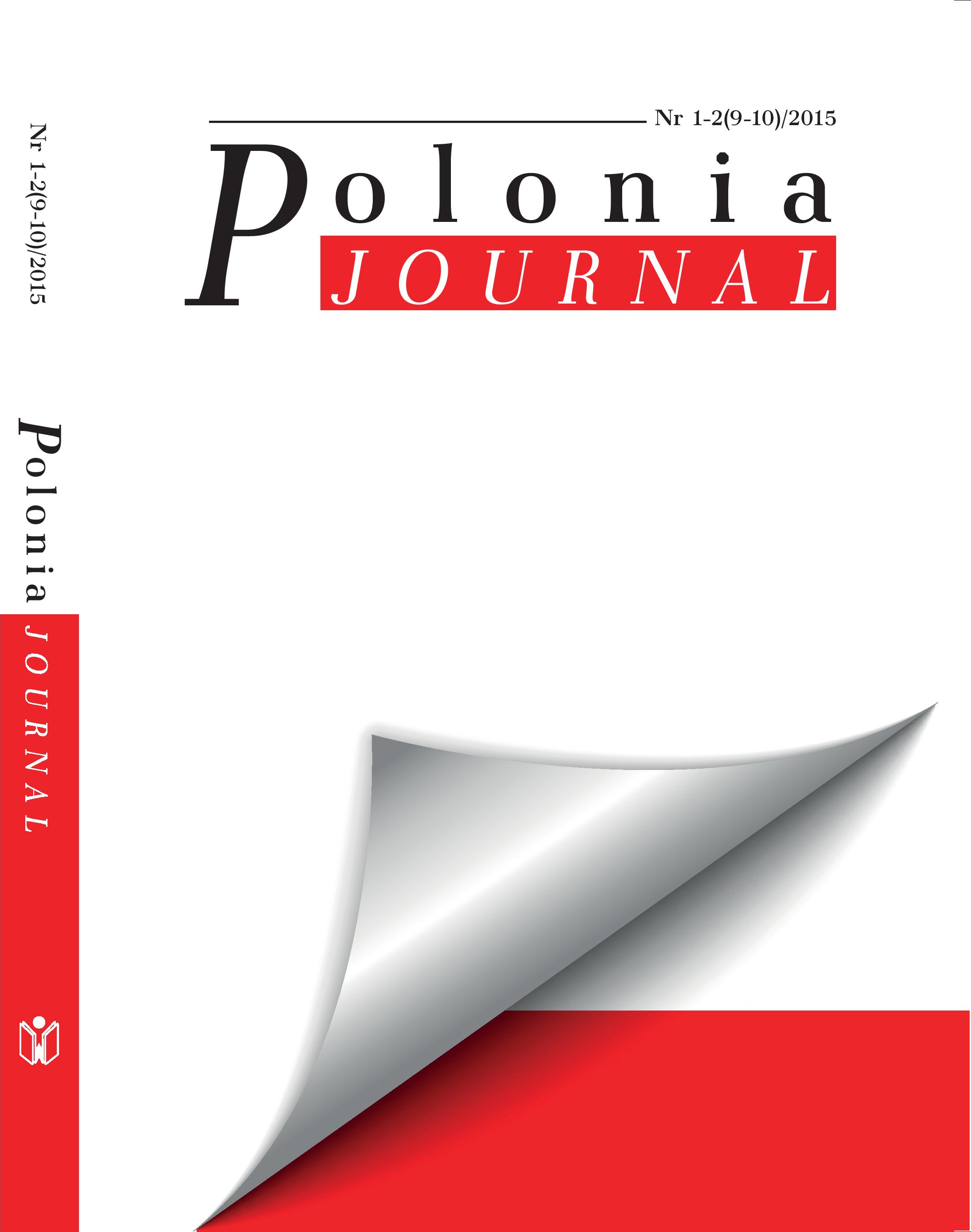
Polish sociological thought has its roots in many sources. Lviv scientific community is one of them, whose influence would certainly be higher if the period of World War II and the final loss of these lands by the reborn Poland, did not stop its development. Socio-cultural environment of Lviv of the late nineteenth and early twentieth century helped to create the beginnings of Polish sociological thought. This happened, among others, through the influence of Lviv scientists for the next generation of students who frequently replenished later scientific community in Warsaw, Krakow, Poznan, and after the Second World War, the Wrocław and Gliwice ones. Polish sociology was formed, as in Western Europe, on the basis of positivism. By moving and adapting these ideas to the Polish conditions by Joseph Supinski, it gained with time its followers, as well as the opponents. Joseph Supinski is credited for Polish sociology to conduct a comprehensive synthesis of positivist’s ideas and giving them a coherent theoretical form, along with an extensive conceptual apparatus.
More...
The European cross-border mergers framework is the most comprehensive to date – transnational mergers are possible following the Sevic case and the freedom of establishment, under a SE structure, and via a transfer of seat, whereas the Cross-Border Mergers Directive has been an overall success in harmonizing the rules on cross-border mergers in the EU. Nonetheless, gaps remain, such as creditor and minority shareholder protection. Dissenting shareholders protection is not harmonized on the European level - implementation of protection mechanisms is at the discretion of the Member States. As a result, certain Member States have decided not to transpose the respective provision in the Cross-Border Mergers Directive in national laws and provide for no special remedies for shareholders in cross-border mergers. The question that arises is whether without further harmonization of protection mechanisms the cross-border merger transaction is rendered dysfunctional.
More...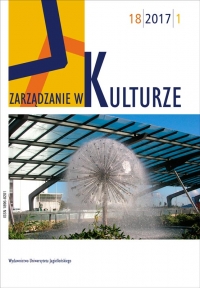
In Europe an increasing shift towards participatory cultural heritage governance is observed, opening the way to the meaningful inclusion of grassroots stakeholders in sharing heritage ownership and administration. In Greece, history politics and current cultural policies underline the symbolic and instrumental value of heritage, reinforcing a state-centric governance model, particularly concerning antiquities. By analysing state policies, rhetoric and projects on heritage between 1994‒2013, we purport that state-centrism in antiquity governance is perpetuated, despite the constitutionally provided “complementarity of duties” between the State and citizens. Nonetheless, participatory practices concerning antiquities and contested heritage are growing. The paper explores some prominent cases in Greece, highlighting the expanding role of decentralised authorities and citizen associations. Concluding, it formulates explorative empirical propositions on the factors enabling or impeding participatory heritage governance, in order to serve as basis for the much needed in-depth, long-term research that is presently lacking.
More...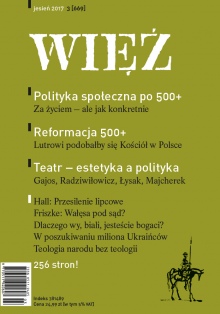
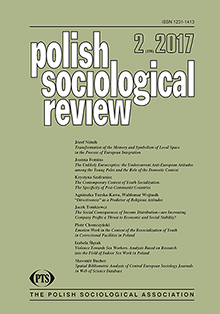
This paper contains a multi-perspective bibliometric analysis of Central European sociology journals indexed in the Web of Science database. The analysis focuses on evaluating the international and national orientation of Central European sociology journals indexed in the period 2012-2015. Data collected for the analysis included the journal's language, publisher, author nationalities, and INO indicator. All the sociology journals analyzed were highly regarded in their home country and other Central European countries.
More...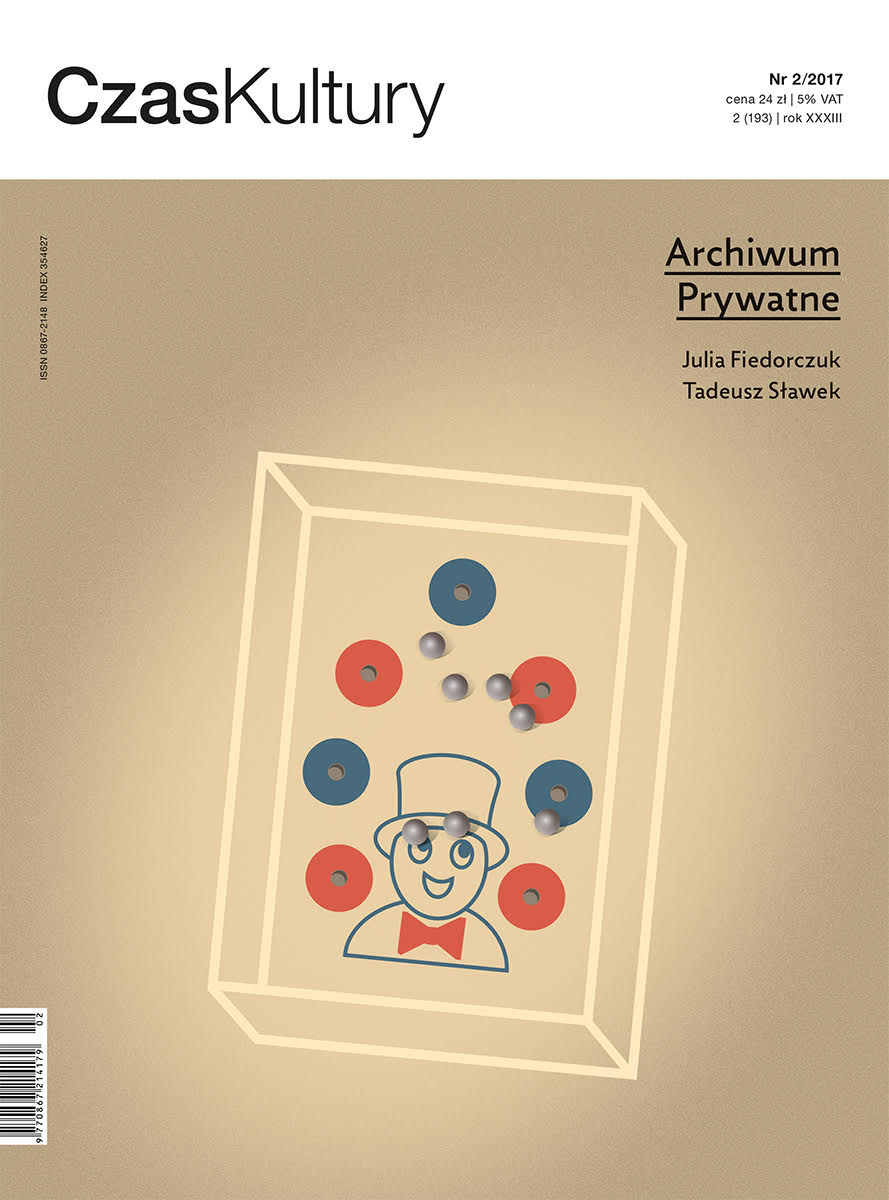

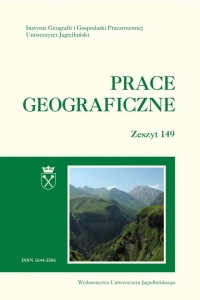
Secondary data comprise resources collected in various sectors of social life, independently from the researcher undertaking their analyses. Collecting such data is usually less time consuming and less costly compared to reactive studies, thus, each time when planning a research study, inclusion of secondary data should be considered. This specifically requires: 1) usage of systematic, multi-criteria evaluation methods; 2) separate evaluation of certain categories of secondary data; 3) separate reference to each of the research specific aims. The following paper presents an example of such an evaluation that meets all the criteria mentioned above. Using a point grading technique we assessed usefulness of three categories of secondary data (scientific literature, data used in content analysis and content of the public statistics) to meet all three specific aims of an interdisciplinary research project conducted by the same authors. Each of the aims differs in a) spatial scale of analyses (regional, local and topological) and b) dominant form of enquiry (quantitative, qualitative and qualitative accompanied with the use of GIS techniques). The results suggest usefulness of the technique in the context of multifaceted research projects: final evaluation scores for particular secondary data categories differed substantially depending on the specific aim. However, we suggest all the analysts to perform a deep insight into the evaluation process itself before deciding to replace reactive research with secondary data analyses. Among others, this is because weights assigned to certain criteria of the evaluation process are often dependent on organisational capacity of a particular research project. At the same time, exemption of the proposed stage of research planning may result in various negative consequences, e.g. 1) reduction in funding perspectives due to weak justification of the planned costs, or 2) lowering research scientific value of the study due to a lack of critical insight into the data, which are out of actual analyses.
More...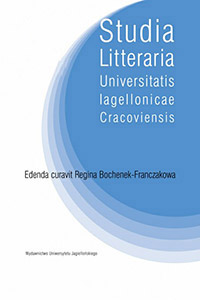
The aim of the text is to demonstrate the unusual vitality of the nationalist discourse of today’s Croatia and Serbia, which explicitly draws on the nationalism of the 1990s that marked the beginning of the new nation states established after the collapse of Yugoslavia. Despite the passage of time, the trite nationalism, i.e. the one visible in the pop-culture, remains a major element of the political life and a guarantor of the state which can be called after Danilo Kiš a state of deep nationalist paranoia. The reflection has been inspired by the current political events, concentrated around the seemingly innocent elements of the pop culture (cuisine), which constitute a telling litmus paper of both the transitions that took place in the face of intensification of the war-induced identity-related discourse, as part of which the various canons of national cultures were reinterpreted, and of the contemporary Serbian and Croatian acts of “pop-cultural knife and fork wars”. The text constitutes an attempt to describe the post-Yugoslav “nationalist menu”, it contains various cultural texts, the selection of which shows the complexity of the problem.
More...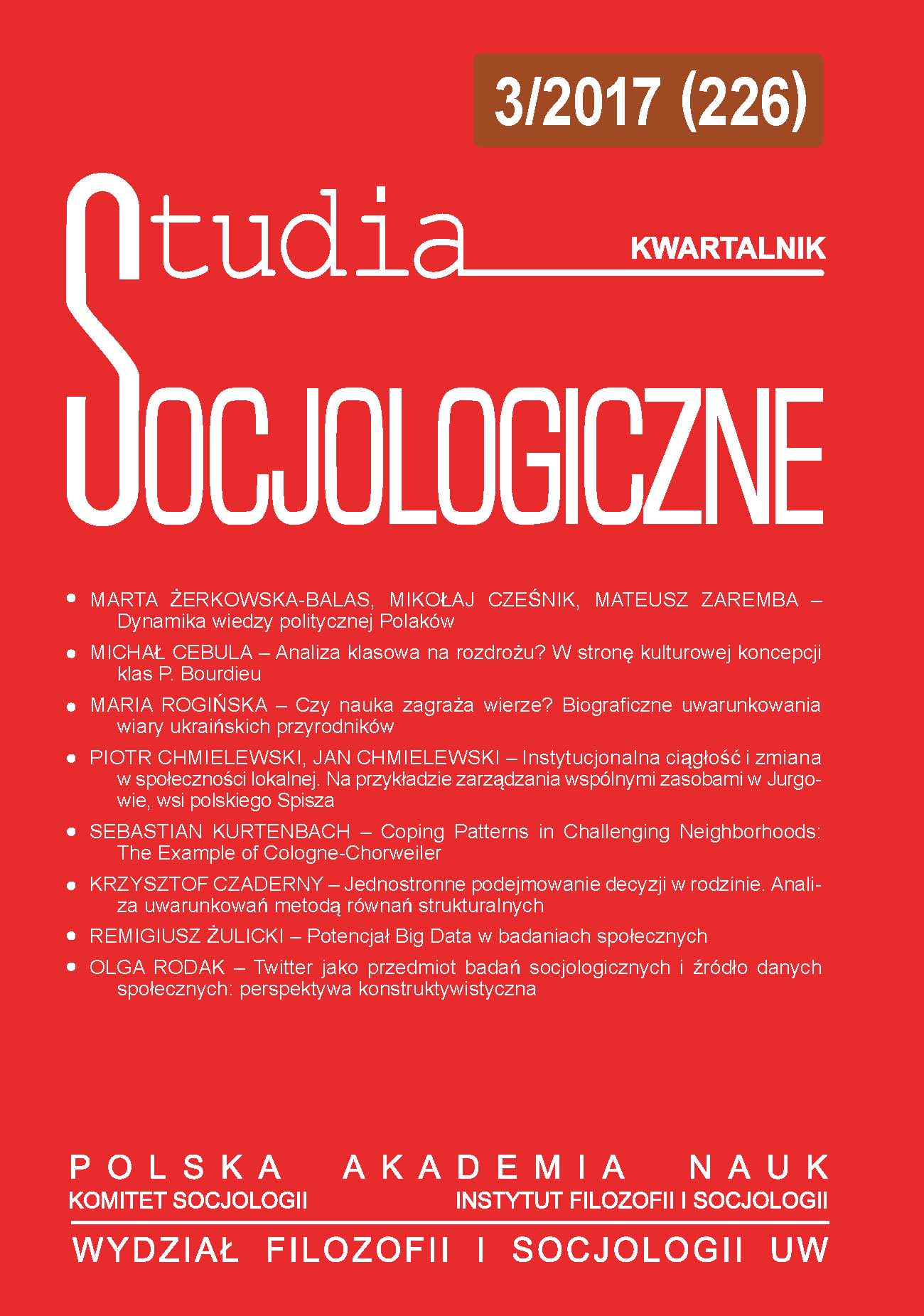

This text discusses the debate pro and contra the possibilities of biological sociology, the new scientific trend, with respect to its possible benefit for the progress of the nation – a priority issue in the inter-war period. The author presents the arguments of Bulgarian philosophers, sociologists, psychologists, psychiatrists, and other thinkers in the field of the humanities, who commented on the achievements of biology and medicine and their applications for “improving” man and making social life healthier by means of various kinds of negative eugenics. The article focuses on the theoretical controversy between the two approaches to society; their serious consequences are commented on primarily in the context of this debate. The discussion is also viewed as echoing European trends at that time regarding this new role of biology. Two philosophical schools in Bulgaria – Rehmkeanism and Marxism – supported “autonomous sociology,” according to which human society is radically different from the sphere of nature, and the biological factor is not important for changing society. The opponents of this view, more numerous, maintained that heredity was more important than the influence of social environment and upbringing; hence, eugenics – the science of the genetics-based improvement of people and mankind – held many possibilities. The article presents the variety of stances that appeared after the change of the intellectual paradigm of “biologizing” social sciences, as well as the actual attitudes underlying these stances. The author looks for traces of this debate coming down to the present day.
More...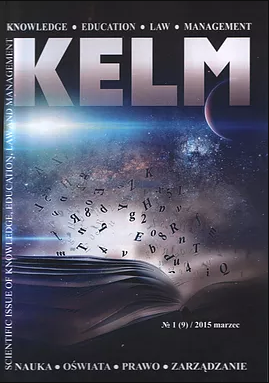
The article reveals the content of visual modeling as means of development of the singing voice of pedagogical universities students within the teacher-student communication through which the purposeful activation of the necessary parts of the phonation apparatus could be achieved through visual means. Adjusts the process of sound formation which leads to the improvement of the student's artistic and technical skills.
More...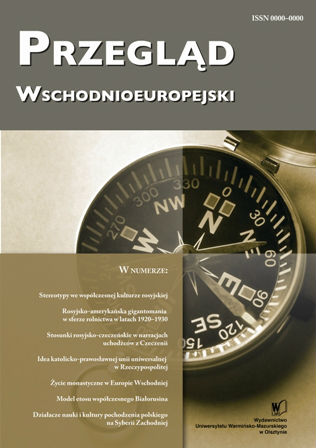
The word ‘myth’ means tradition, legend. Myth-making is seen as the most important event in the cultural history of mankind. In primitive society mythology presents the basic way of understanding the world. The history of the people needs to be told of his mythology, and not vice versa. In our view when creating the image of a political leader should come from the heroic myths. The main characteristics of political myth are relying on the archetype and some technological artifice. We can say that the political myth is an adaptation of a cultural myth for political purposes. Political myth thus becomes a necessary form of communication between people and the government. Political myths are widely used in election campaigns, because from a psychological point of view the mythologizing the political leader allows differentiate him from competitors.
More...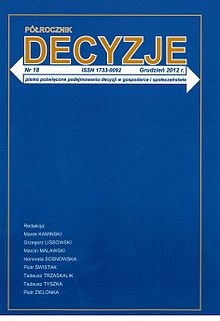
Niewielka różnica w sformułowaniu komunikatu może prowadzić do odmiennego zachowania jego odbiorcy. Zjawisko to nosi nazwę efektu sformułowania lub ramowania (ang. framing). W artykule opisano trzy rodzaje framingu: efekt sformułowania decyzji ryzykownych (ang. risky choice framing effect), efekt sformułowania cechy (ang. attribute framing effect) oraz efekt sformułowania celu (ang. goal framing). Pokazano, że zjawiskiem odpowiedzialnym za powstawanie efektu sformułowania jest, powszechnie występująca u ludzi, silna awersja do strat. Omówiono przykłady znaczenia zjawiska framingu w różnych obszarach gospodarczych, takich jak: kształtowanie cen, polityka podatkowa czy negocjowanie.
More...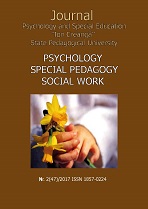
The process of social representation designates a form of specific knowledge which, "acting simultaneously on the stimulus and the response", links a subject to an object. In its case, we are in fact dealing with a "way of communicating with the outside", with "turning t o the world of phenomena and deeds", with an "articulation of the personality to the social context", with a "mechanism with which theories about the social environment are built", with a "style of conduct towards the outside " or, finally, with a "restoration, a reconstruction of the environment through the perspective of our philosophy of life". By saying "social representation," we actually mean a " modeling of an object into and through behavioral and material linguistic relations". With this object, the type of representation in question is "in a relation of symbolization ( taking its place ) and "interpretation" ( giving it meaning ), being in a variant of expression or in a form of construction of the real ". What prerequisites must there exist for a certain element of the social environment (a person, a situation, an event, a deed, a phenomenon or an idea) to trigger the emergence of a social representation, of a sui generis collective science capable of building "a common vision of the world", a "system of understanding and interpretation of reality", a "strategy of community agreement between individuals or groups"? According to a widespread view, for that to happen, at least five conditions must be met. In brevi , they look like this: (a) the polymorphism [= the object of representation must have several facets, a certain diversity in the social field; the representation of the object at the level of the groups is to obtain particular connotations, specific colors determined by the respective particularities of the population and/or the environment]; (b) way of reference to the social group [= the researcher must capture the link between a social group and the object of representation; "representations are built, developed and worn by social groups"]; (c) identity and cohesion [= the researcher must ensure that the object of representation is in relation with certain social stakes, particularly those related to the identity and cohesion of the group; the members of a group tend to take into consideration the object that makes them see their identity and feel cohesive]; (d) way of reference to the "other social" [= the researcher must establish a close relationship between the object and other social instances in real interaction with the group producing that representation; "if the "other social" to which the group would relate didn‘t exist , the representation would not make sense nor would exist"]; (e) the non - existence of orthodoxy [= the object of representation must not relate to groups subject to regulatory or controlling courts; in the case of social representations, "the processes of organization and structuring occur naturally, without external pressures or interference".
More...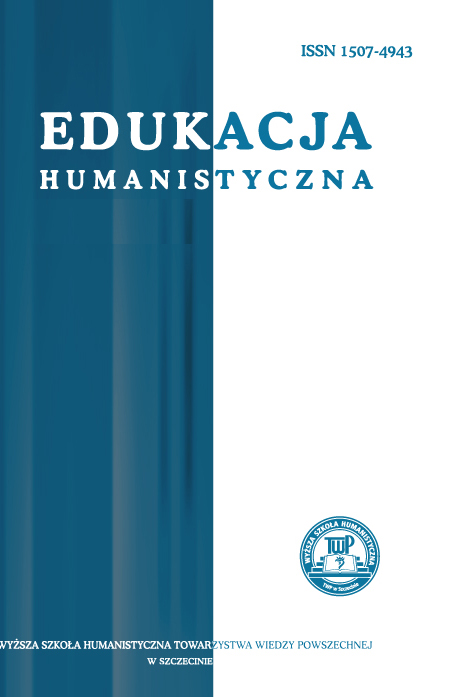
The diagnosis of the chronic disease causes the change in every aspect of human functioningand in human’s live. It especially happens in the case of neoplastic disease. All of them necessitate thesearch for new solutions and actions, we need also more information about this new situation.We need to underline that the presence of disease affects the sick people as well as their relatives.Family members experience a lot of reaction while caring their loved with cancer and during the bereavement.The most important element in long-term disease is the psychological education on thevery disease, its treatment and possible accompanying symptoms. It may also be helpful in work withone’s own emotions, views on disease, as well as in finding internal personal resources to deal with future problems.
More...
Nowadays the effectiveness of social rehabilitation process is the subject to a systematic analysis.These actions are included into the reality of the institution considered as the complex system which consists from elements connected with oneself. Both theoreticians and practitioners of the social rehabilitation pedagogy are seeking the factors underlying reasons of success for effectiveness in education and therapeutic process. It is difficult to find which factors influence on the effectiveness of isolated intervention. It is only possible to determine the effectiveness of education and therapeutic process only if they are analysed as a whole. The process of evaluation, in the presented article, is understood as the sequence of operations which analyse not only effects, but how reached them as well and which factors affected it. Results of the evaluation let the institution to find the proper action and adapting them to day-to-day issues. According to them the institution could design and implement the right action appropriate to problem situations turning up in the education environment.
More...
As a result of the executive penal code changes, the rules of duties performed by a professionalprobation officers were changed. The scope of their responsibilities and rights was defined, as well asnew instruments of work were added. They help to improve effectiveness of probation officers’ controlfunctions but also requires special competences. The present study shows the difficulties in implementingthe specialization in opinions of district probation officers. The present article is dedicatedto this issues and shows the current position, role and challenges which the Polish probationmeets and faces at various stages of a legal process, by placing in prospect of the professional specialization.
More...
The article deals with the problems of organization of teaching mathematics in classes ofa humanitarian profile. The attention that it appropriate forms of teaching mathematics provide theformation and development of motivation of students of these classes. According to the psychologicaland pedagogical features of these students manifested in the process of learning mathematics authordetermine that an effective way of organizing the study of mathematics in such classes are laboratory and practical work.
More...